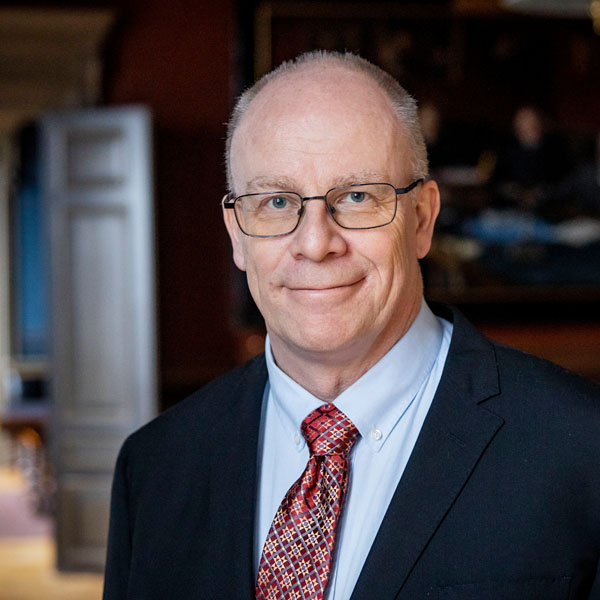On Monday we had a seminar on academic freedom that made the news. The media attention was due to the fact that the seminar was interrupted by demonstrators who wanted Swedish universities to condemn Israel and suspend all cooperation with universities and researchers in Israel. A message that started out reasoned, but which gradually escalated, especially outside the room, to become cruder, less nuanced and more hostile towards the state of Israel and its people.
I have asked Professor Linda Wedlin, Director of the Democracy and Higher Education Research Programme, who was one of the organisers of the seminar, to give her views on Monday’s events.
Our thematic week on academic freedom is the envy of colleagues at other universities, both in Sweden and abroad. The opportunity to engage with an important but difficult issue, and to discuss in depth and reflect together is indeed enviable. This year, we have chosen to focus on international perspectives on academic freedom, and we have heard about experiences from Africa, the United States, Hungary, India and Turkey, and reflected on how Sweden compares with our European neighbours.
On Monday afternoon, it was time for vice-chancellors and a former minister of education to take the floor in the Humanities Theatre for a discussion on how Swedish higher education institutions exercise their academic freedom in practice. It was this conversation that was interrupted by loud, but in part eloquent, protesters. The statement read out, and respectfully listened to by our audience, was largely articulate, thoughtful, and very clearly important. Unfortunately, however, the message was drowned out by the chaos that filled the theatre and later the corridor outside.
The protesters wanted to express their opinion. That is quite understandable. It is important to feel that people are listening to you. However, certain conditions have to be met. One is to be prepared to listen to other people’s arguments and points of view, not just to state your own. Another is to respect that it is possible to differ. Regardless of the position we take individually or as a group on a particular issue, we can all learn something from discussing, arguing and reflecting together.
The importance of a nuanced and respectful debate is perhaps especially vital to remember when discussing difficult and emotive issues. Just a few days earlier, a party leader in the Swedish Parliament had announced her resignation, citing threats and hatred related to her role in the public debate. Perhaps this accentuated the discomfort many of us experienced inside and outside the theatre this day.
The disruption inside and outside the theatre made it impossible for a while to go through with the conversation as planned. The theatre was evacuated. During the evacuation, a colleague asked me discreetly whether any of the vice-chancellors might be willing to talk to the protesters? I went so far as to reply that everyone on the panel was prepared to talk as well as listen. But who were they to talk to? The moderator’s invitation to dialogue while we were still in the theatre was immediately waved aside; later attempts by others to engage outside the theatre were similarly futile. How can we engage in dialogue with people who do not want dialogue?
Providing a space for open conversations on difficult issues is one of the ambitions of the research programme, and one of the democratic missions of universities. Such conversations require good conditions: wise and well-prepared panellists, an engaged and knowledgeable moderator ready to ask critical and incisive questions, an interested audience. In that respect, we were ready. The stage was set. The issue of the responsibility and voice of universities in public debate, including on Israel and Palestine, was on the agenda. It was a shame it did not work out as planned. It is even more of a shame that the group that disrupted us was unable to perceive the opportunities that were actually offered in that room at that time – the opportunities for dialogue, new insights and perspectives, and perhaps also a chance for greater mutual understanding. The conversation we eventually managed to have was good and important. With academic freedom comes great responsibility, including the responsibility to stand up for values and principles that are important to us and to society. When, where and how to do this is not obvious. These are things we need to discuss, a lot, often and with many people. One of my own conclusions from the week is that we need to do a better job of engaging colleagues, students and the public on issues of academic freedom. And we need to continue providing spaces for open conversations on difficult issues. The challenge, of course, is to do this if the spaces we offer no longer feel safe.

